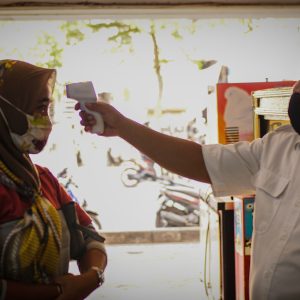I woke up one morning with a pain that ran from my left little and ring fingers and crawled up the sides of my forearm to my elbow. Thinking about it, I blamed my big head for injuring my nerves, as I have the habit of placing my forearm under my head while sleeping. When the pain did not subside, I forced myself to think about my activities over the past few days. Could I have injured a nerve while spending an entire day at the Mohegan Sun Casino? Or maybe while watching my favorite 007 James Bond movie, I could have crushed a nerve that hooks around the elbow joint without realizing it. Other than that, nothing else I did was out of the ordinary to have caused a bruised nerve. Though the pain was not debilitating, its mere presence, like a crawling spider, was annoying, as was the tormenting needles and pinpricks sensation.
Two weeks later, when the pain refused to disappear, I began to treat it with the medical scrutiny it deserved. First, it occurred to me that to make the proper diagnosis, I would have to stop acting like a patient and put on my professional persona. With my professionalism engaged, I reasoned that what ached me could be part of a diagnostic basket containing shades of pinched nerves, from mild to severe. Was I sure? Not by any stretch of my imagination.
Then, I began to examine the origins of my doubts in self-diagnosis. Is it because I know too much or too little? For instance, the pins and needles sensation could be a sign of vitamin deficiencies, especially vitamin B deficiencies. My narrow food preferences—primarily beans, fish, and peanuts—supported that suspicion. Broccoli used to be a part of my diet, but not anymore. In my professional opinion, however, vitamin deficiencies did not seem to be the origins of my woes. After all, had it been vitamin deficiencies, the pains would have been felt in other parts of my body, too, and not just my ring and pinky fingers.
Setting aside that knowledge, I decided to start taking vitamins B12 and B6. Not entirely surprising, none of that vitamin stuff relieved my symptoms. A simple blood test, which I didn’t even bother ordering, would have revealed whether lack of vitamins contributed to my ailment. Why would I do to myself what I wouldn’t do to my patients? That is, I wouldn’t have started any patients on vitamin supplements to cure such ailments without first obtaining a blood test to determine deficiency. Yet, I was treating myself blindly, tossing all medical logic out of the window.
Since I proved incapable of being objective, I decided to seek help from a neurologist. I targeted the office of a medical building with a neurologist signpost. Upon entry, two older women were in an open room behind a glass window screen. Both looked up as I approached. The woman directly behind the window attended to me, while the other glimpsed around but continued to attend to the printer machine. No doubt, she was eavesdropping on the ensued dialogue. “How can I help you?” the receptionist asked. “I need to see a neurologist. I have this sharp pain that shoots from my fourth and fifth finger to my elbow, and I would like to see the neurologist,” I replied. After shaking her head sideways a few times, she asked me about my insurance, and I told her I had Anthem Blue Cross Blue Shield. “Card please,” demanded the receptionist as she retrieved and opened her appointment notebook. Of course, I brought the wrong card for which I was reprimanded, but she still tried to schedule me to see the neurologist. Flipping the pages of the appointment book back and forth, the receptionist firmly announced, “I do not have an appointment available until the end of November 2021,” which was 45 days out. “The doctor wouldn’t see you for 45 days,” she emphasized.
Standing next to the window, I thought, what would happen in 45 days? If I suffer from a precarious condition that needs urgent diagnosis, 45 days seemed too long to wait with no precise diagnosis. I wanted to ask the receptionist, “Shouldn’t you at least run my symptoms by the neurologist to decide whether it is safe for me to be seen in 45 days, right now, or within a week?” But instead, I was frozen from thinking about what the long wait could mean to my health. Then, a middle-aged man dressed in a white coat with the prongs of a green-colored stethoscope clasping his neck came into view behind the women. Most likely, he had overhead my symptoms, and as physicians do, emerged from seclusion to assess whether I was about to die. He did not look like someone overwhelmed with clinical work. So, what did he do now that he was out in the open after seeing my face and hearing my complaint made in the most solemn voice possible? I had hoped for him to intervene and overrule the elderly receptionist. But he seemed to be tiptoeing around them like many medical practitioners nowadays. His mouth opened but shut rapidly when the receptionist stared him down.
“Guts, doctor, have some guts,” I thought to myself. “Talk to me and relieve my fears or intervene to get me on the schedule quickly.” None of my wishes came through, however, and the neurologist escaped.
This encounter reaffirmed my belief about how physicians are quickly losing control of patient care. Since healthcare delivery steps in many parts of the world have become hyper-partitioned, clinicians frequently miss what is coming down the scheduling pike. Thus, inexperienced front desk receptionists or other “gatekeepers” in the healthcare delivery system could jeopardize patients’ lives and wreak havoc on patient experiences and timely care delivery.
Needless to say, I located another practice and neurologist who was eager and willing to help troubleshoot the cause of my pins and needles sensation. My condition said the new neurologist is probably an Ulnar nerve entrapment (cubital tunnel syndrome).










